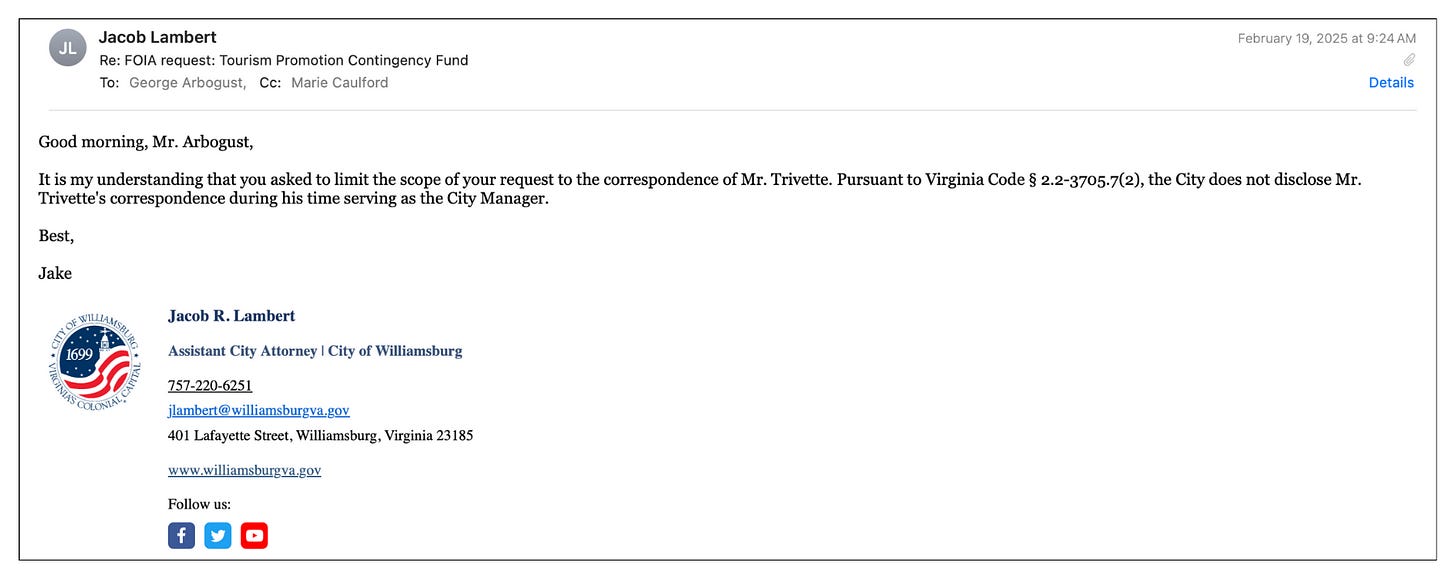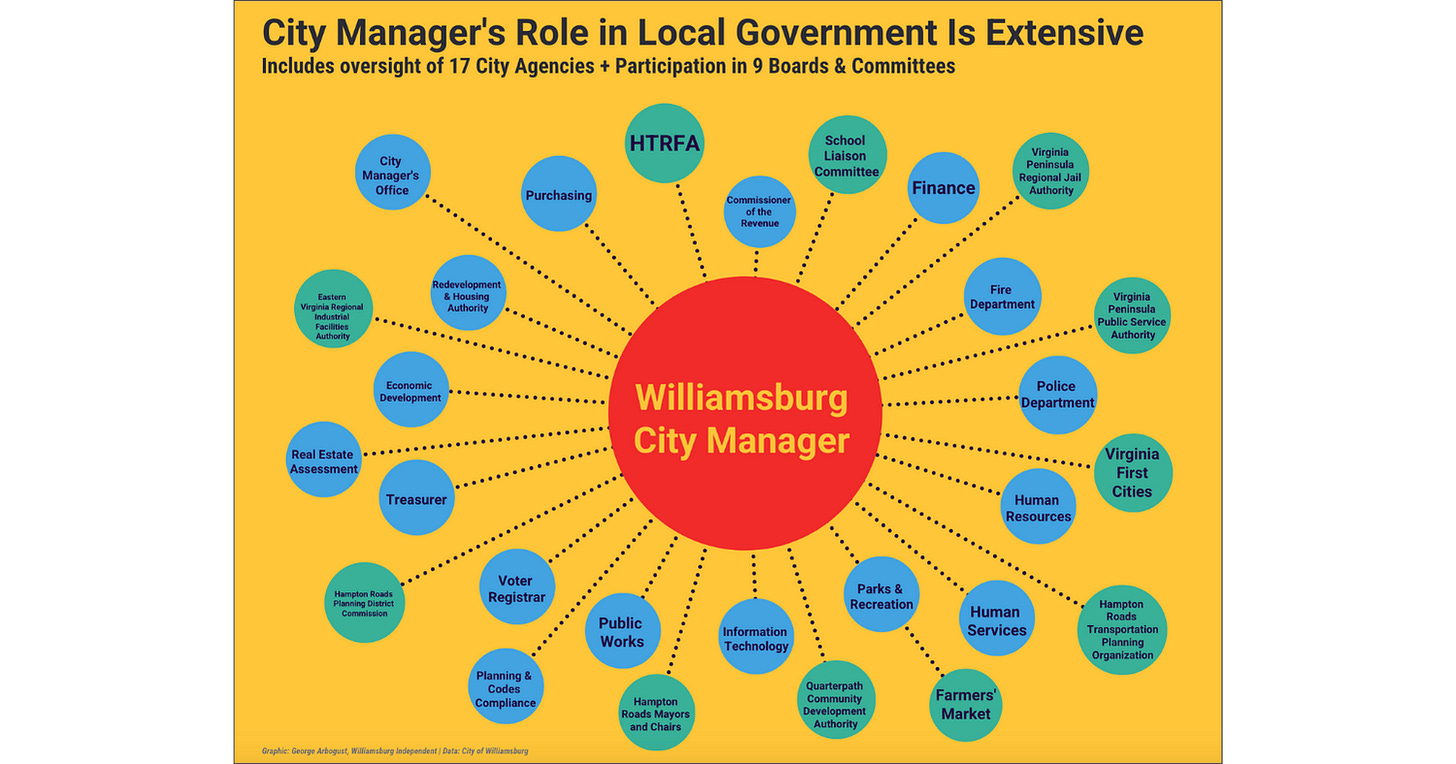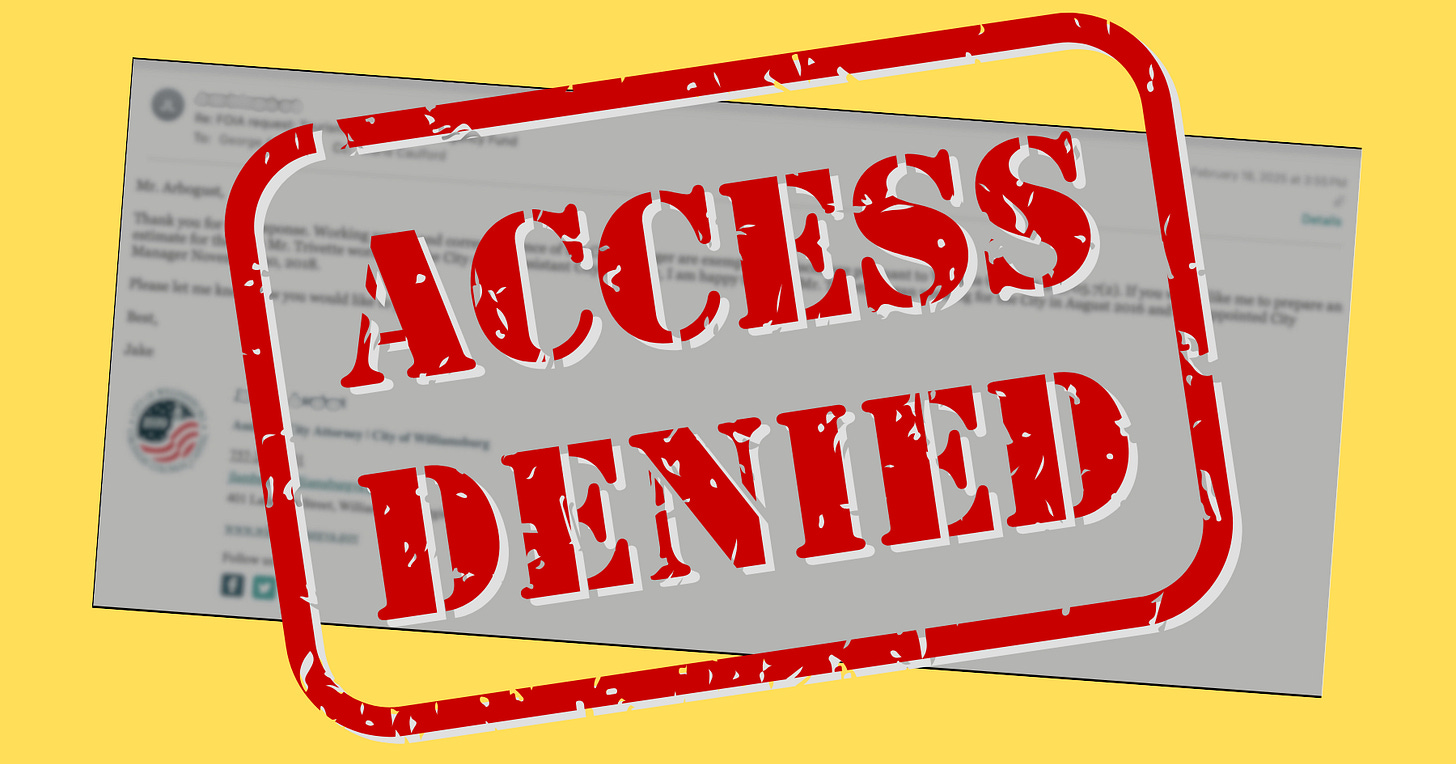COMMENTARY: Williamsburg FOIA Policy Excludes All City Manager Correspondence from Review
City's choice to limit public access extends to more than just sensitive information
In response to a FOIA request last week concerning a discretionary art program funded by the City, the City’s Assistant Attorney informed me that Williamsburg’s Freedom of Information Act (FOIA) policy is to exempt all working papers and correspondence from City Manager Andrew Trivette. They cite Virginia State Code 2.2-3705.7(2) as justification, and according to experts on FOIA law, they’re well within their right to apply this code and keep everything they want secret. But apparently, they don’t have to — it’s simply a choice they’re making.
(Editor’s Note 2-22-25: Point of clarification, the program in question was created as a tourism funding program. One of this year’s recipients was the Muscarelle Museum of Art, who intends to use the funds for out-of-town marketing efforts. According to the City, recent recipients included several conferences, as well as a group dedicated to building a live performance venue and for studying mobile vendor payment options for Merchant Square).

I am aware of additional instances of blanket denials like this for other information withheld by the City under claims of executive privilege. The particular code is often referred to as the “working papers” exemption, which gives discretion to the “Chief Executive Officer” of a government — the City Manager in Williamsburg’s case — about what information to make public in response to a FOIA request.
According to a report by Chris Young from the Reporters Committee for Freedom of The Press, the point of the code is presumably to “provide certain high-ranking executives some privacy over their decision-making prior to that decision being made. The idea being that if the public can see the decision-making process at every step along the way officials might not be able to be as candid and the quality of the decisions they reach might be affected.”
After receiving the City’s response, I still failed to see how a discretionary art fund meets the level of sensitivity that would require withholding information about the City Manager’s role. On the other hand, I believe that information about his involvement and management of the program, such as the selection of recipients, is of public interest.
Since I’m not an expert in FOIA issues, I contacted Megan Rhyne, Executive Director of the Virginia Coalition for Open Government (VCOG). In an email response to my follow-up questions, she wrote, “The exemption is discretionary, meaning they may withhold records, not that they must. They choose whether or not to use an exemption. They can have a policy note to release records when the exemption applies, but they can also make decisions on a case-by-case basis.” She also stated that, “VCOG has long advocated for a narrower interpretation of this exemption and/or a revision to the section.” (Editor’s Note 2-22-25: Ms. Rhyne contacted me to add this to her comments: “They can have a policy, but they still have to comply with FOIA. The response "shall identify with reasonable particularity the volume and subject matter of withheld records." - Section 2.2-3704(1).)
Of course it’s appropriate that the City Manager have discretion over the information released to the public related to management of City affairs. But do we want a local government that issues blanket denials for information as a matter of standard operating procedure? Does the City Manager’s involvement in a public art program seem like something the City should withhold from public scrutiny without specific explanation? One has to wonder why the City has chosen to invite the appearance of governing by fiat.

The implications are significant because the City Manager’s role in local government is extensive, including setting goals and priorities and deciding how money is spent. Actually, it’s hard to find something in the City that the City Manager isn’t involved with — he oversees all the City departments, creates the City’s budget, heads the organization which just borrowed $60M to build the sports facility, sits on the library board, and oversees the farmer’s market. Mayor Doug Pons also recently appointed Trivette to 9 other boards, commissions and working groups, the same as the Mayor by my count.
So, denying any and all requests for information regarding the City Manager’s correspondence leaves a big void in terms of public knowledge, and thus the ability to provide much needed oversight. In response, the Williamsburg Independent will be launching a section of the site dedicated to local FOIA requests and issues. We will post information about the FOIA requests we’re involved with, as well as any that others want to share as well. So stay tuned for that.
(Update 2-22-25: Added clarification about the particular program in question. Added additional comment from FOIA expert. Fixed grammar.)
George Arbogust is Editor of the Williamsburg Independent. Send feedback, tips and ideas to contact@williamsburgindependent.com.



